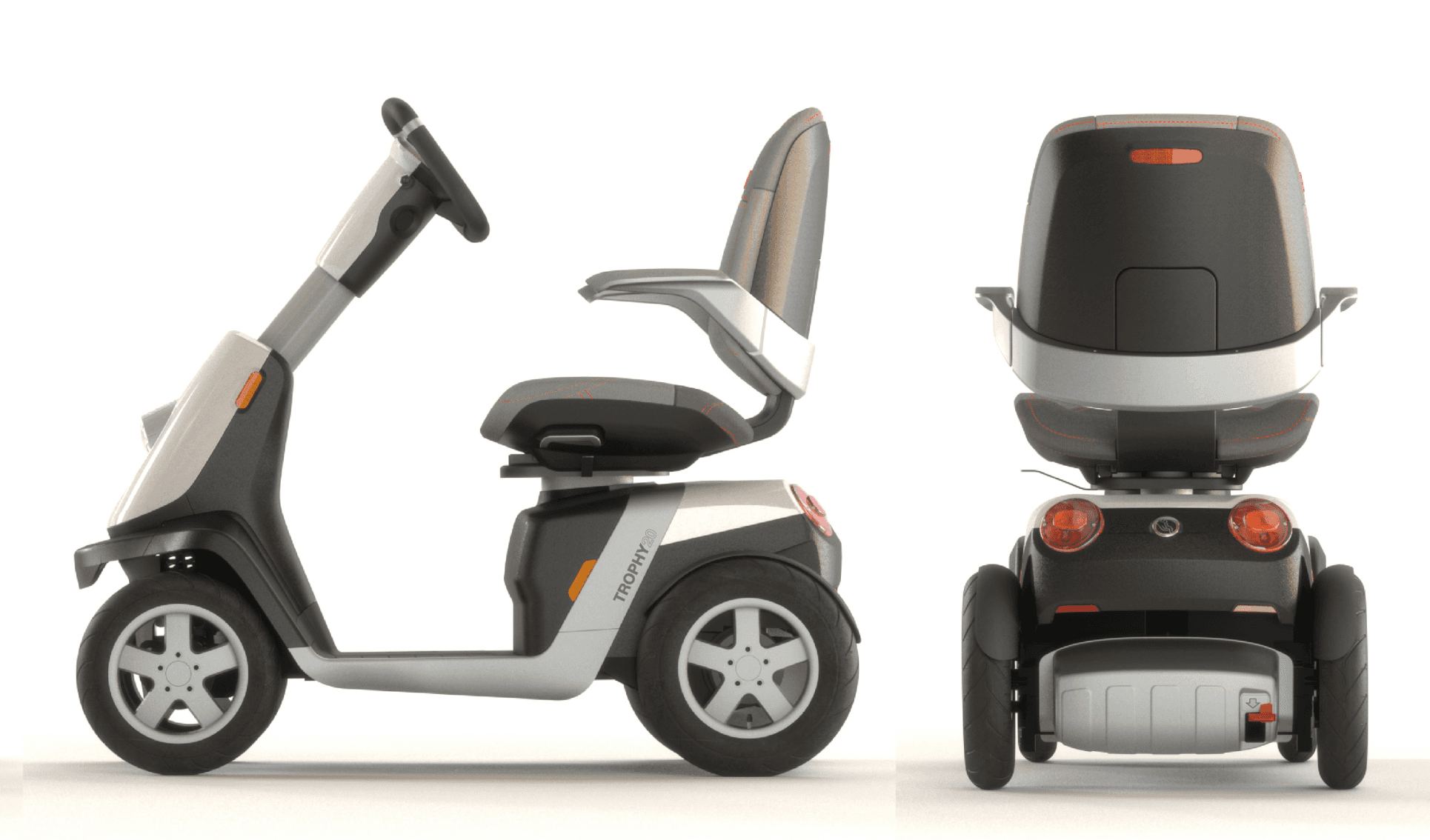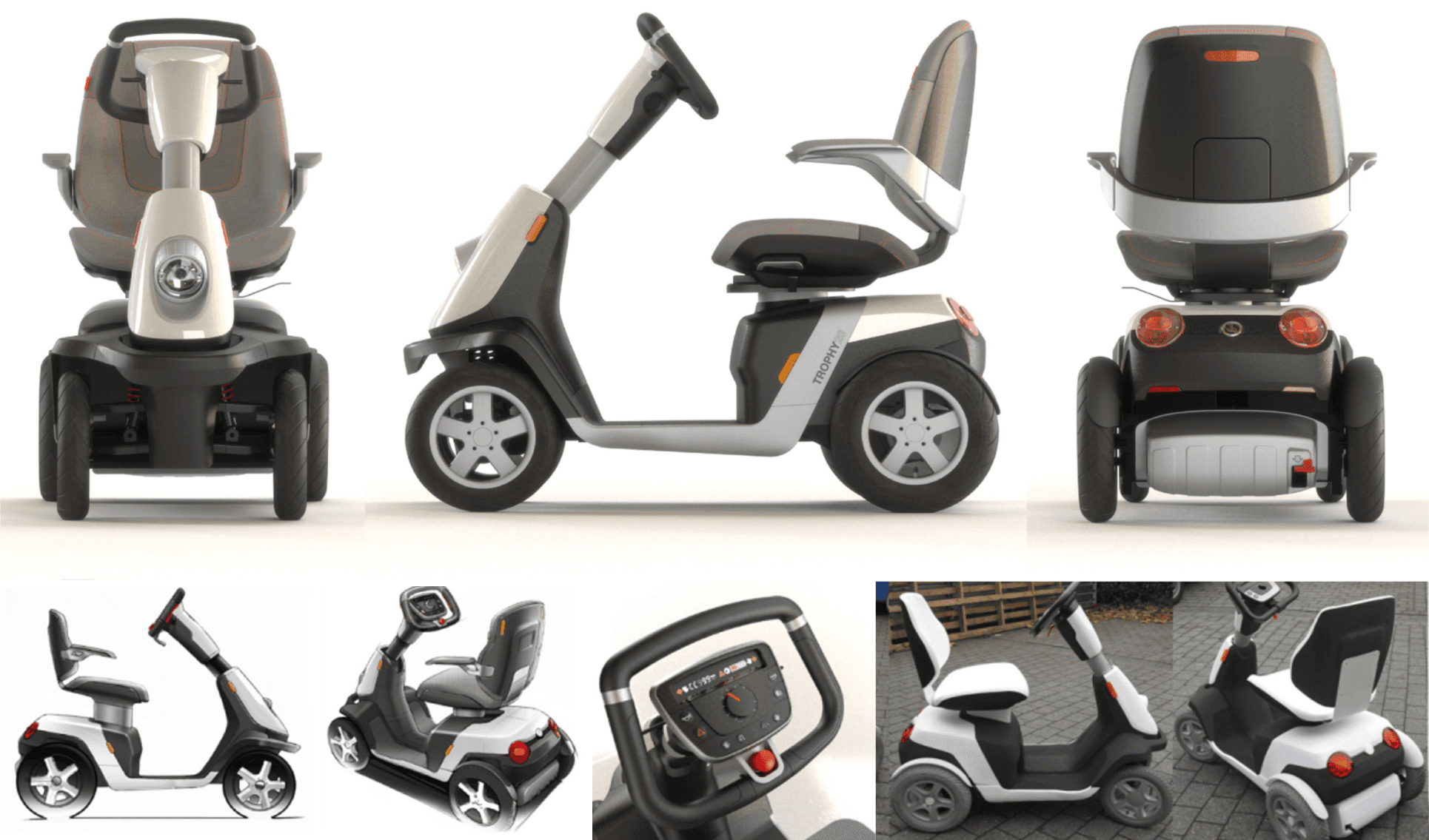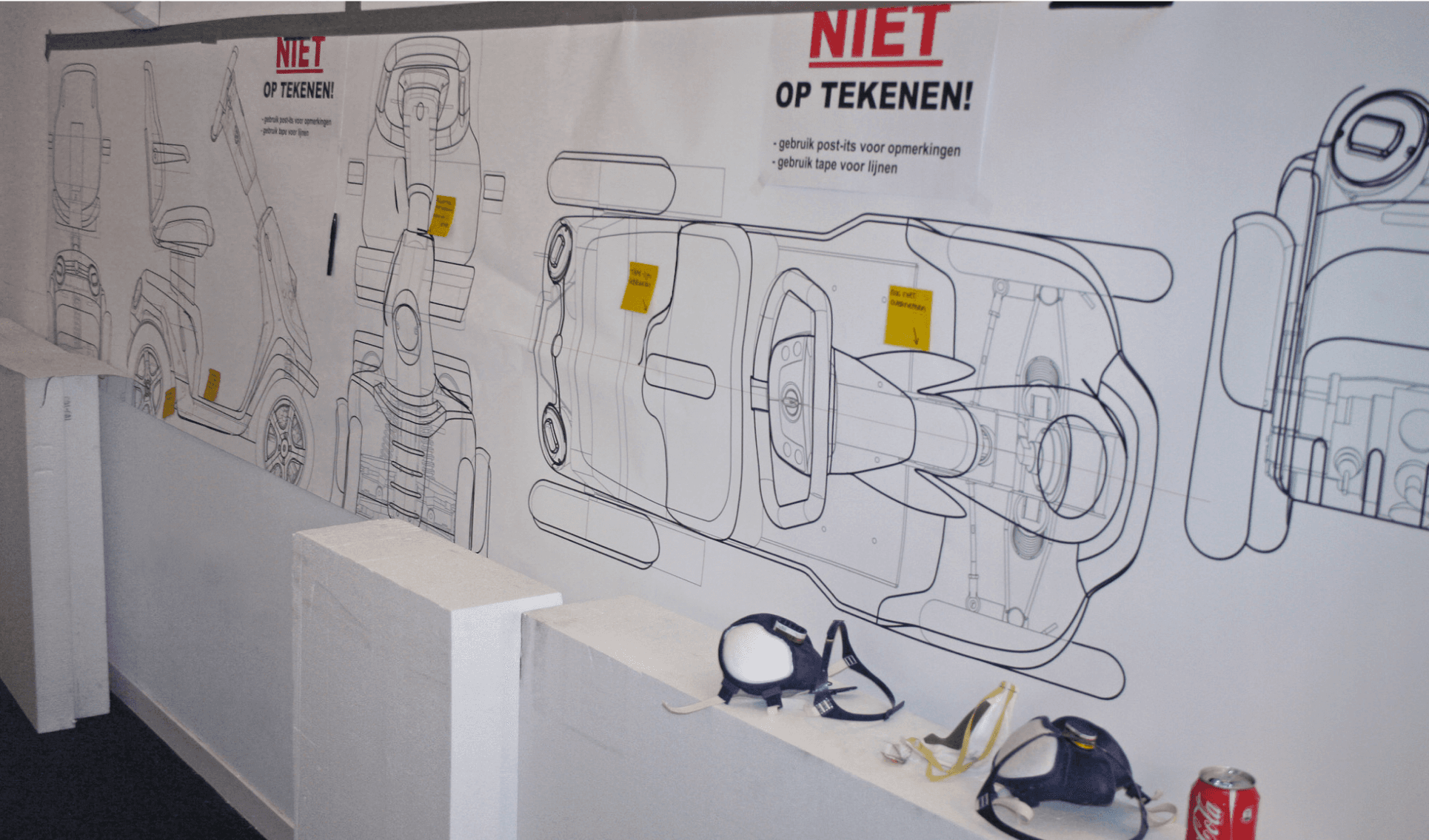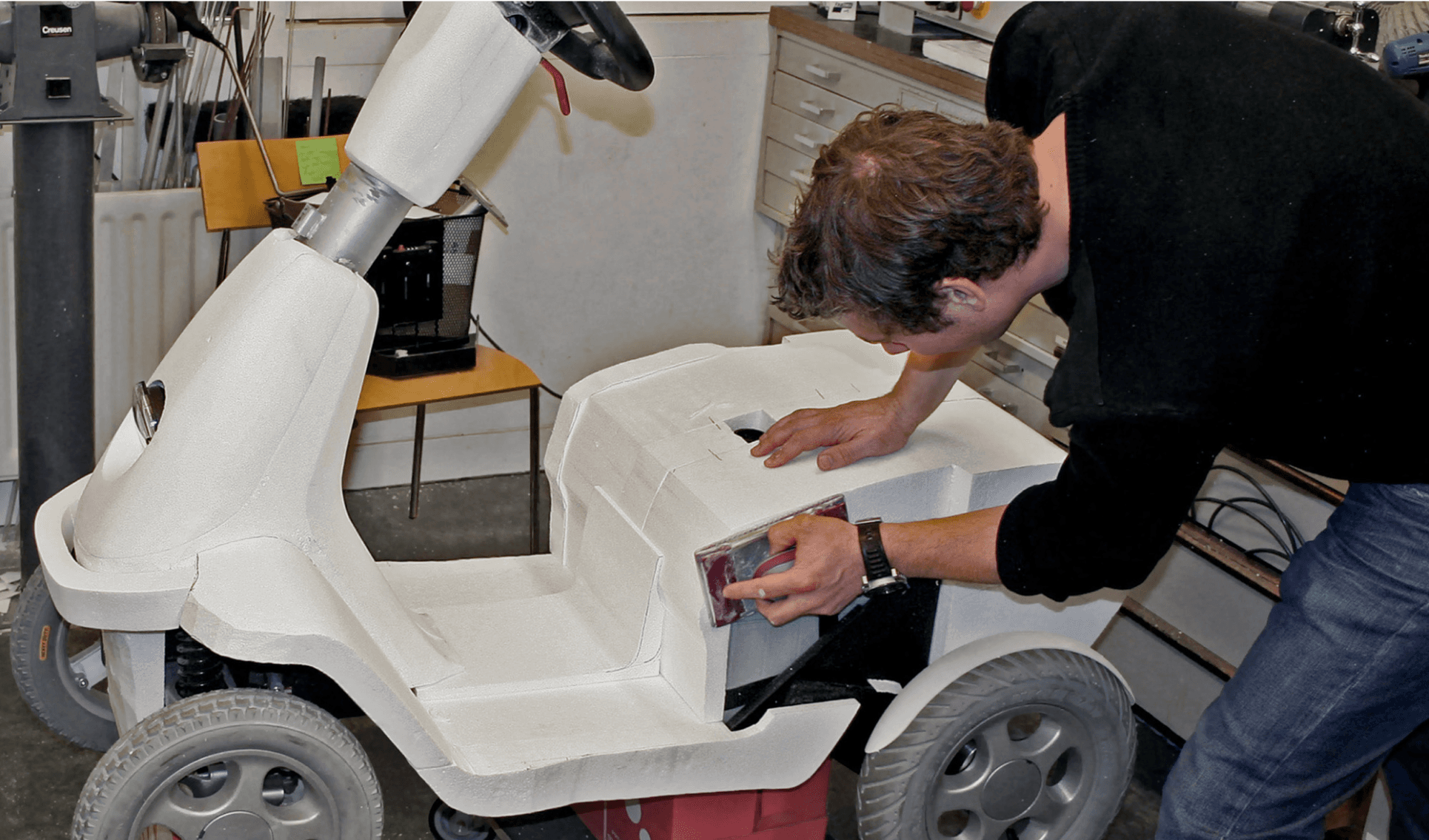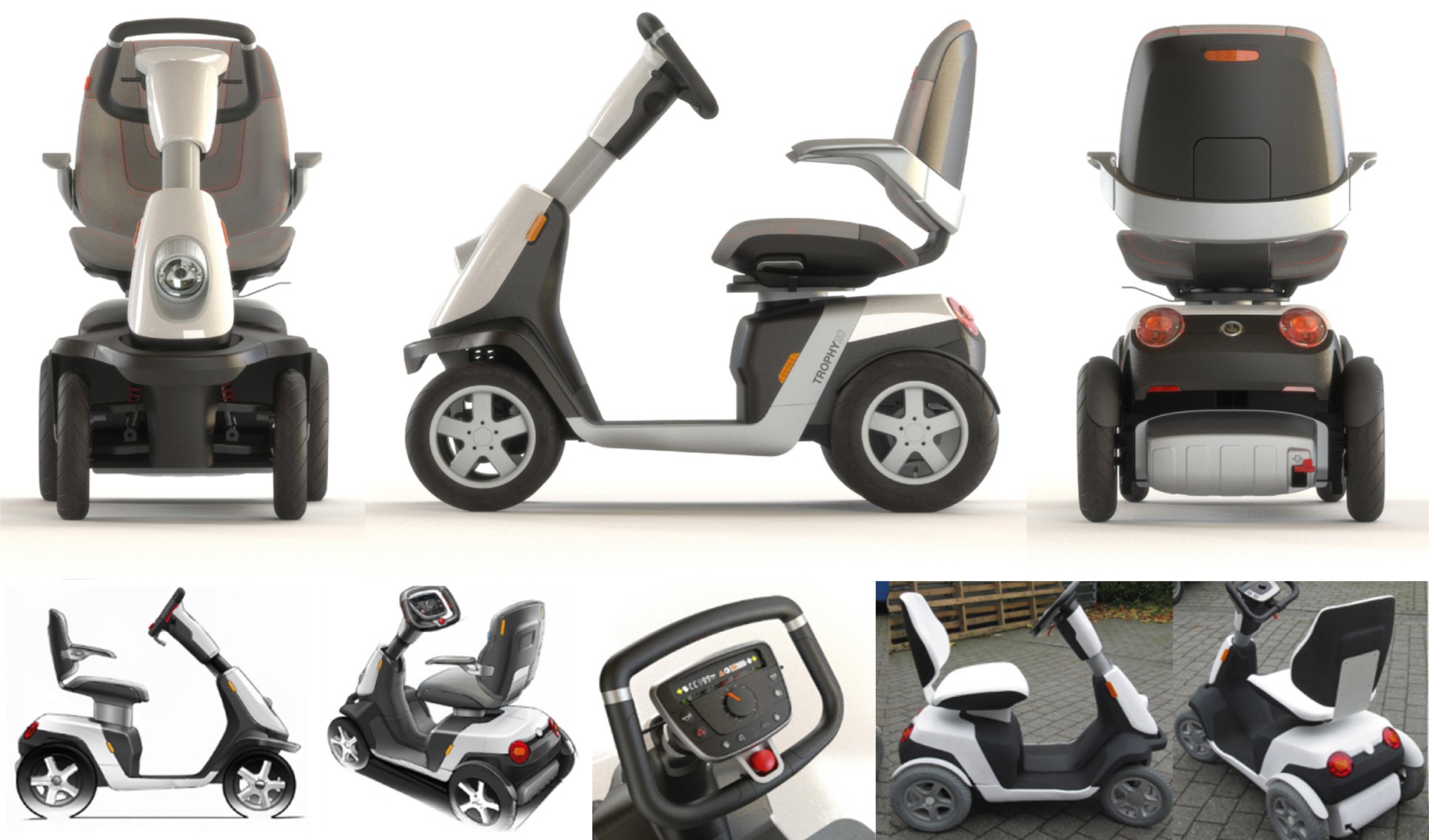Industrial Design
Handicare
Lead Designer & Project lead
Breaking the mould
Limited mobility doesn't equate to being old. And being old doesn't mean you don't value good design. But while mobility scooters grant a fresh degree of self-reliance for those with restricted mobility, they've never been coveted items.
We wanted to change that. In addition to providing a class leading ride feel, we set out to create a thoroughly modern experience and fresh aesthetics. All to be achieved within narrow restrictions on project and production costs.
In order to validate our starting points, our client hooked us up with one of the many “Scoot mobiel clubs” in Brabant. These clubs consist of enthusiasts who schedule routine group rides and are pretty opinionated on their equipment. This proved invaluable when testing ergonomics, ride feel or aesthetics.
Conventional mobility scooter mechanics feature a "tiller" steering system, similar to that of a bike, and altering the height calls for the loosening and tightening of an archaic thumb-wheel. We didn't settle for that. Our solution was a ball-joint steering axle, complemented by a gas spring for instantaneous height adjustments, resulting in a steering experience that felt more automotive than bicycle-like.
In order to enable these innovations from a cost-price perspective, we needed to reduce costs elsewhere. We decided to focus on manufacturing. Prior to the Trophy, typical scooters had tubular frames and vacuum-formed covers. Instead we introduced a contemporary sheet-metal frame and injection-moulded covers. These required higher initial investments but less labor, and after reaching break-even, helped produce a product that was cheaper yet boasted a better surface finish.
Looks to match the ride
To make sure that looks hit the sweet spot, one needs to decide where to draw inspiration from. Taking inspiration from the automotive industry is a pretty obvious choice. Yet, as the competition incorporate elements of sports vehicles and vintage cars with racing green colors and chrome trim, we opted for an alternative sector: fresh, contemporary, compact cars such as the Smart.
We made countless sketches and quick models, which eventually resulted in a 1:1 foam model attached to a prototype chassis. This allowed us to judge proportions in real life and after many hours of refining the foam model we captured it using 3D scanning. The resulting template was used by our in-house engineers to create the CAD files for the injection-moulded covers.
The final validation was a full-scale 3D print of all covers that were then mounted on a pre-production prototype frame created by the client. It led to some minor optimizations for the panel mounting, and went straight to production after that.
The result is a product that set an new standard. It won a Red dot best-of-the-best award in 2012 and an IF award in 2013. Plus it was one of the most fun projects I ever did.

